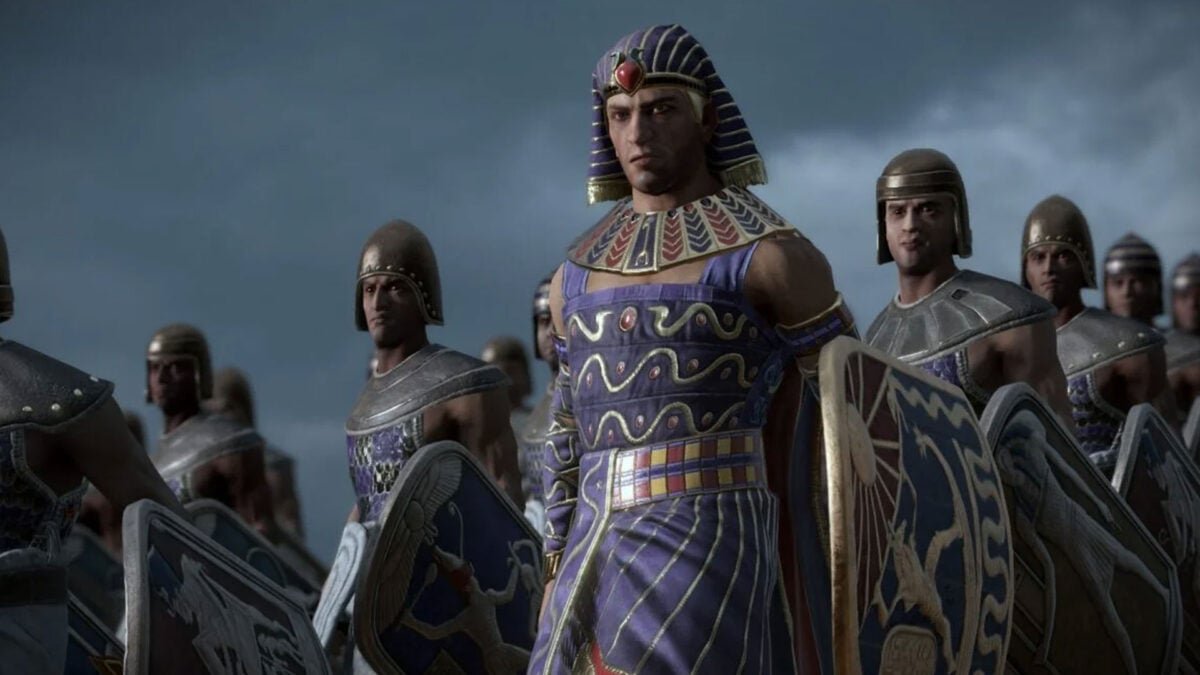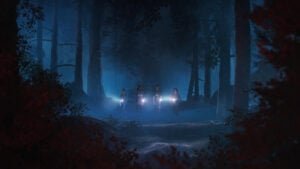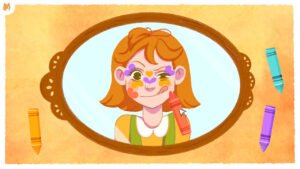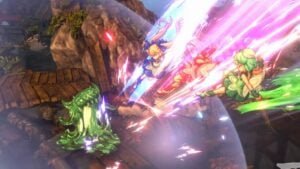The Total War series is synonymous with complex strategic scenarios and huge-scale battles. Over the last twenty years or so, the turn-based strategy franchise has had numerous critical and commercial successes, including Rome: Total War (2004), Total War: Shogun 2 (2011) and Total War: Three Kingdoms (2019). As of late 2022, it has reported sales of over 40.4M copies. Total War: PHARAOH is the newest entry, one which will have players experience Ancient Egypt during the tumultuous era of the Bronze Age Collapse and rise above pretenders to become the last great Pharaoh.
During gamescom 2023, I sat down with Total War: PHARAOH game director Todor Nikolov to discuss the setting, dynamic weather and more. Full interview below:
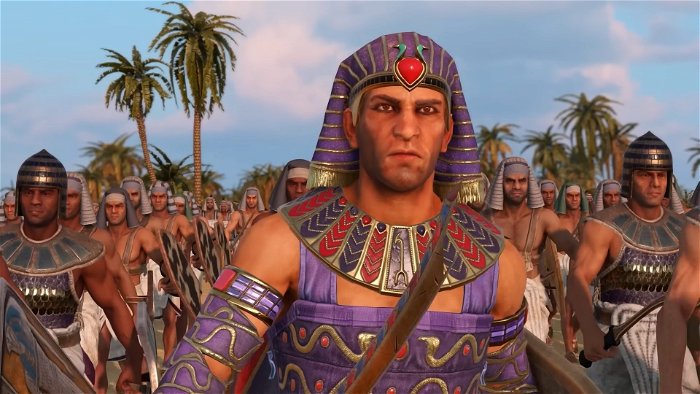
Hello! Thank you for having me! Do you mind introducing yourself?
Todor Nikolov: Hi, my name is Todor Nicolov, and I started working in the game industry…maybe about 15 years ago? I’ve been QA [for] quite a while on mobile games, then I switched to the PC gaming industry when I became a game designer. Six years ago, I started working for Creative Assembly Sofia. Gradually, I started leading a few of the projects — I was the lead designer for the Rise of the Republic DLC for Total War: ROME II and also for Troy: A Total War Saga. Now, I’m the game director for the upcoming Total War: PHARAOH.
So, how historically accurate should players expect Total War: PHARAOH to be?
Todor Nikolov: We’re going for an experience that is grounded and historically authentic, which is kind of different from being historically accurate because, first of all, we don’t have very detailed accounts of the Late Bronze Age. We’ve got a lot of data here and there, but, really, the whole thing is a puzzle that we only have a handful of pieces of. So, we’re striving to achieve an experience that feels authentic and which would make the player feel that what they see in the game would have been plausible in the Late Bronze Age.
You won’t see any fantastical elements, but in choosing to be authentic over accurate, we can introduce some fun gameplay aspects and give some more choices to the player. For example, in Total War: PHARAOH, certain units can use fire arrows to set things on fire, but there is no evidence to suggest that people of the time had fire arrows in the first place. However, there is also no evidence to suggest that they didn’t have them. So, in the context of Total War: PHARAOH, this allows us to craft a more fun experience for the player.
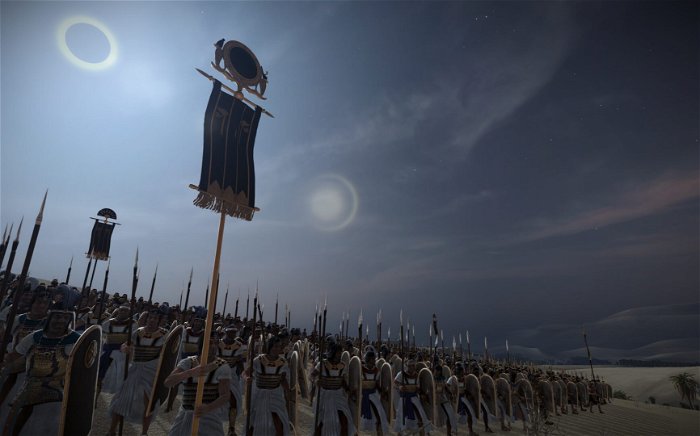
In this case, how do you negotiate the balance between authenticity and fun? When do you prioritize fun?
Todor Nikolov: Well, there is a lot of iteration and a lot of testing. From the beginning of the project, we’ve outlined a few new features tailored for battles, specifically, so that we can present players with as many options as possible. So we have, as I said, the fire arrows, but we also included dynamic weather: the weather has an effect on terrain, and the weather has effects on units, too.
This introduces a couple of new tactical choices for the player. In addition to this, we are introducing a new system called armour degradation. This system is important for us because it both introduces realism and allows for even more choices. So, yeah, we are trying to use every possible opportunity to include gameplay choices for the player.
Are there any game mechanics or features that you had to pass on?
Todor Nikolov: A lot of choices were imposed on us by the fact that we’re making a game about the Late Bronze Age. So, for example, this is why you only see chariots in the game and no cavalry. At the same time, cavalry units are very easily recognizable by Total War players, and so we had to put some special effort into making the chariots feel impactful. This being said, they are very susceptible to getting stuck in mud, for example, which can make them very vulnerable depending on circumstances.
Focusing on the setting now: why did you choose this particular place and time period this time around in Total War: PHARAOH?
Todor Nikolov: Egypt has featured in a number of Total War titles, but never the one from the Bronze Age, when the new Kingdom of Egypt was at the height of its power. Egypt is also easily recognizable because, even today, everyone knows about the pyramids, about the pharaohs, about the Nile…So it felt really, really important and fun for us to be able to create a Total War based in Egypt.
From that point on, we had to do some research to define the exact time period we wanted to cover. And this is where the gameplay requirements imposed on us by what a Total War game is came into play. Because a Total War needs a time of conflict, where you can represent multiple factions as they fight their way to the top, we chose the Late Bronze Age, which ends with a bang.
There were many stable international societies at the end of the Late Bronze Age in this part of the world, and it’s not clear why, but these societies eventually collapsed in a process called the Bronze Age Collapse. Egypt, however, survived. They never did achieve the kind of power they had before, but they managed to survive because Ramesses III defended Egypt. So, this felt like a very compelling Total War story for us to tell.
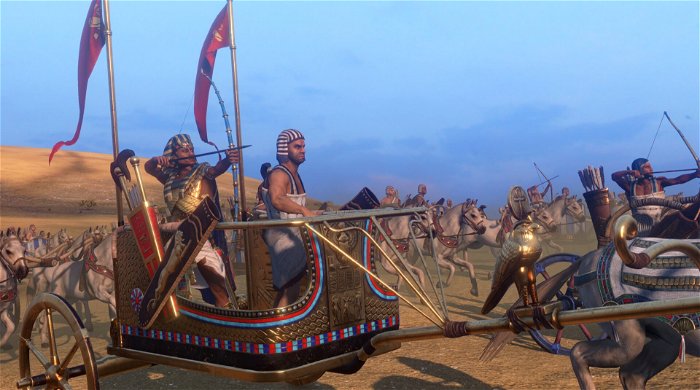
You mentioned having to do some research — how did you go about it? Did you consult with historians?
Todor Nikolov: There are plenty of resources online, and they were the easiest to get a hold of, so we started there. We also relied on a lot of books and relied on external consultants to verify our ideas — they were extremely helpful in verifying that we were correctly reflecting the time period. Eventually, we were able to see how various kingdoms interacted with each other, how deep their diplomatic relationships were and that everyone was asking the pharaoh for gold! [laughs] There was a lot of drama in that age period!
Given that, as you said before, we don’t have very detailed accounts of what happened, are you and your team trying to fill in the gaps in Total War: PHARAOH? Are you interpreting what may or may not have happened?
Todor Nikolov: Yeah, you can say that. What we tried to do, because we wanted to represent specific characters, was to try to put them in the context of the Bronze Age and gradually flesh them out. So, for example, we have two Canaanite leaders: Bay and Irsu. Bay is the leader that is prone to joining an empire, let’s say Egypt, and dominating the political structure from within. Irsu, on the other hand, is a survivalist, so if you need resources, you might want to raid and plunder your neighbours — he’s very good at that! So, this is an example of us having the freedom to tailor the story to the gameplay that we wanted to achieve.
Features-wise, how is Total War: PHARAOH different from other Total War games?
Todor Nikolov: In terms of the battles, in particular, we wanted to come up with a slower Total War experience, one closer to the older titles but with a modern twist. To this end, we wanted fewer but more impactful choices in battle. So, the player will need to take a look at the battlefield and take account of what’s happening.
Is the weather changing? If so, how is it going to affect the terrain? Are there any flammables? Because if yes, for example, it is occasionally a good idea to force the enemy to fight in a forest and then set it on fire. This is achievable unless it starts raining, in which case you’d have to adapt and change tactics. Unit stances, in particular, are a way for the player to have agency and control over the behaviour of units as they are fighting.
There are various options for particular units to push forward and, if they are facing a lighter unit, to push them back, thus creating openings in the battle lines. These are the main battle features, but we have also introduced a variety of features for the campaign — I’d like to say a few words about them also.
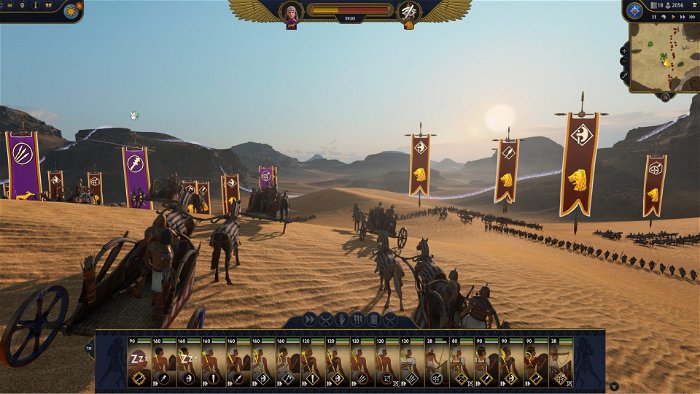
Please! Please do!
Todor Nikolov: So, we want to give the player the freedom to develop their faction through a number of significant choices, choices like, for example, which gods to worship. Then, you have the choice of joining one of the many great empires. For example, if you are an Egyptian, it makes a lot of sense to join Egypt, even though you may, say, have the option to expand to the north and join the Hittite Empire.
Once you have joined either of the two, in this case, you can also assume a position in court. There are five court positions representing the political structures of each empire, each with their bespoke bonuses. Alternatively, it may be safer not to get involved with court dealings. Finally, one of the more significant choices you can have in the campaign is choosing a nation’s legacy. This is our way of featuring famous historical characters who have been active before the time period we are reflecting.
This is quite impactful because, for example, if you are playing as an Egyptian, you may choose to emulate the pharaoh Khufu, who built the pyramids. And so you will then be able to build pyramids of your own on the campaign map. Or, you can choose to play as the heretic pharaoh Akhenaten and replace all of the gods in the pantheon.
Finally, perhaps most importantly, there is a way for you to become the pharaoh of Egypt because you are not, not at the beginning of the campaign. To do so, you need to gain enough legitimacy, and once you do that, you can challenge the current pharaoh. You will have opponents who also have legitimacy, and you will need to prevail against them, too — once you do this, the crown of Egypt will be yours.
What happens if you don’t prevail against other pretenders to the title of pharaoh in Total War: PHARAOH?
Todor Nikolov: The game carries on. You can absolutely not win the first civil war: the campaign will not end, so you can prepare for round two and declare a civil war again. This is something we believe actually happened at that period of time in Egypt, and so we designed and implemented a system to reflect this.
What is something you are most proud of with Total War: PHARAOH?
Todor Nikolov: One of the things that I like most about the game is something that I personally wanted to see in a Total War game for a while. And it might not seem like a big thing…actually…I have two things! [laughs] So, the smaller thing is bodyguard customization, which gives you a lot of flexibility and adaptability depending on the situation you find yourself in.
And an important feature that we have in the campaign is campaign customization. There are a variety of options that we are introducing to give the player freedom to craft the kind of experience that they might find fun. Because, for example, with these options, you can make the game incredibly easy if you choose so.
Thank you so much! Any final thoughts about Total War: PHARAOH?
Todor Nikolov: I would really like to see more people playing the game, and I would like to hear their feedback. For example, a couple of months ago, we had a battle preview event, and it was amazing to see everyone’s passion: some of them liked what we did, whereas others didn’t. But, in any case, we found passionate players telling us about what they’d like us to include in the game.
What we managed to do after was make a list of the most significant feedback, some of which we managed to address. For example, some people expressed the desire to see Egyptian art [on the] unit cards. So we did just that! So, yeah — play the game, give us feedback. We’re reading all of it.
Excellent, thank you again!
Total War: PHARAOH launches on October 11th on Steam and Mac for 79.99 CAD. It will also be released on the Epic Games Store in 2024.
